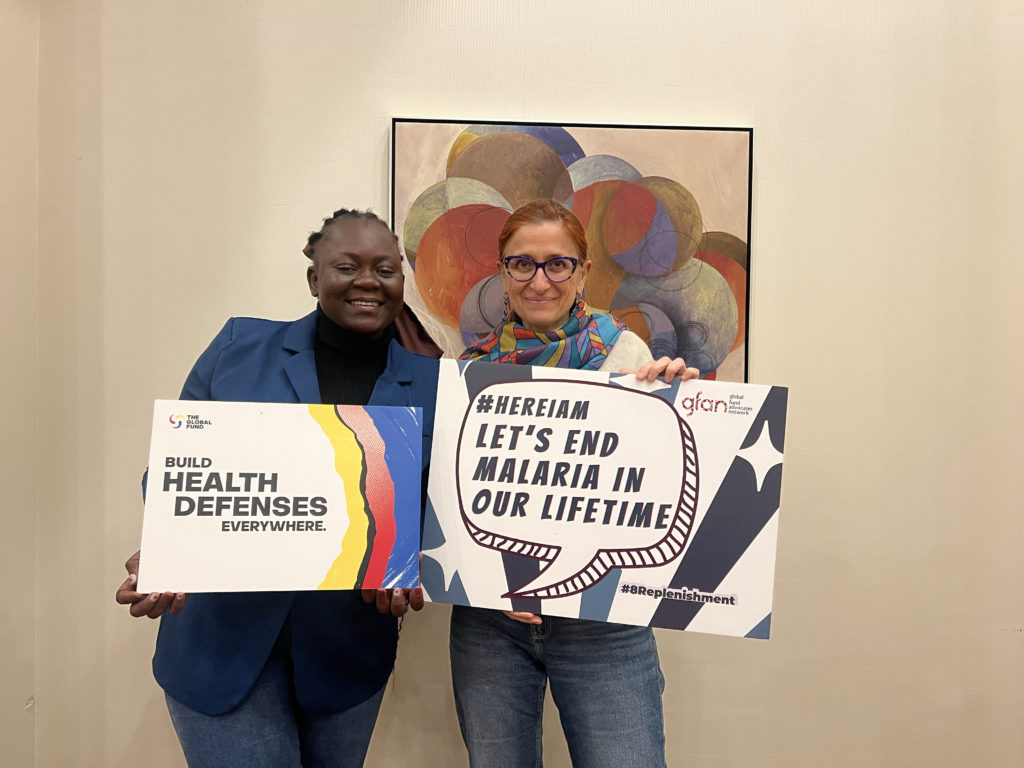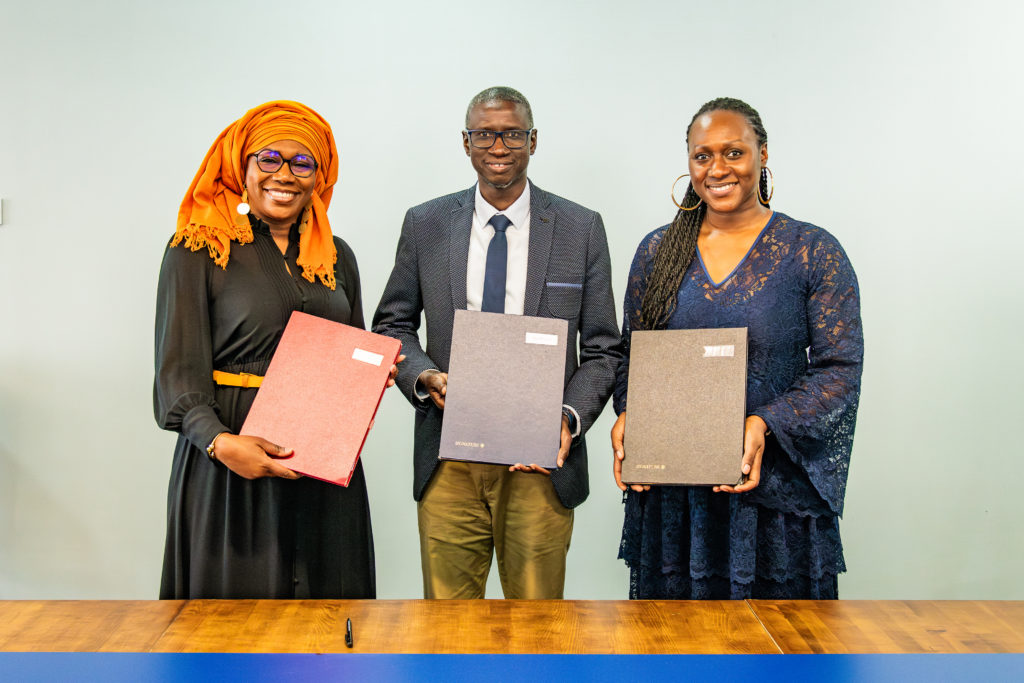Covid-19: Why we should encourage Africans to get vaccinated

Professor Christian Tientcha Happi is a Professor of Molecular Biology and Genomics in the Department of Biological Sciences, and the Director African Center of Excellence for Genomics of Infectious Diseases (ACEGID), Redeemer’s University. He holds a BSc in Biochemistry, MSc and PhD in Molecular Parasitology from the University of Ibadan in 1993, 1995 and 2000 respectively.
He did his post-doctoral research in Molecular Biology and Genomics at Harvard University, School of Public Health, Boston, MA, USA (2000-2003). He is currently the Director, Directorate of Research Innovations and Partnerships (DRIPs), Redeemer’s University. He has carried out research focus on Human Genomics, Molecular Biology and Genomics of Infectious Diseases, especially Malaria, Viral Haemorrhagic Fevers (Lassa fever, Ebola Virus Disease, and HIV among others. His laboratory confirmed the first case of Ebola Virus Disease in Nigeria in the 2014 Ebola outbreak, and work with Nigerian Health Officials for the successful containment of the Ebola outbreak in Nigeria. In this interview with JIMOH BABATUNDE, he talked about how they developed the rapid diagnostic test kit for covid, which can give result within 10 minutes to 15 minutes. He also talked about the need to encourage Nigerians to be vaccinated because the COVID-19 vaccine is efficacious and that it has been demonstrated all over the world that people that take the vaccine, protect themselves against the virus infection. Here is an excerpt from the interview.
Current Research Interest
My research focus is on Human Genomics, Molecular Biology and Genomics of Infectious Diseases, especially Malaria, Viral Haemorrhagic Fevers (Lassa fever, Ebola Virus Disease, and others), and HIV. My current research activities consist of using innovative approaches that combine patient care, fieldwork, laboratory, molecular biology and genomics methods for discoveries that have shifted the paradigm in clinical research and applications in parasites and viral diagnosis, parasites biology and genomics, Pharmacogenomics, and human genomics. Also, I am passionate about building research capacity and human resource through training and mentoring activities. Through my research, we have been able to identify molecular markers of antimalarial drug resistance in Plasmodium falciparum, the agent of malaria. We recently discovered new viruses (EKV-1 and EKV-2 and developed new rapid diagnoses for Ebola virus disease (EVD), and Lassa fever virus. My laboratory confirmed the first case of Ebola Virus Disease in Nigeria in the 2014 Ebola outbreak, and work with Nigerian Health Officials for the successful containment of the Ebola outbreak in Nigeria. Research work in my laboratory contributed significantly to the establishment of the global reference for human genetic variation.
Our research work has also resulted in the identification of new genes associated with human resistance to infection to the Lassa fever virus. I have been working in the space of infectious diseases in the past 22 years, across west Africa Lassa fever, ebola, monkeypox, yellow fever and covid. The genomic works that I have been doing over the past 12 years hemorrhagic fever is mainly to understand the nature of the virus and leverage those information and translate it to tools like a point of care diagnostic, also things like a vaccine, we are also very much involved in capacity building, so we set up one of the best genomic platforms where we are training what we call a critical mass of young Africans so Africa Centre of Excellence for Genomic infectious diseases that I am the founder and director, is to create what we call academic and research environment that transcend national boundaries, where young Africans can actually use that platform to express their God-given talent and then use such platform to do genomics for public health, development of the continent so in so doing, we are basically focusing on training what we refer to as critical mass African scientists that can annex the knowledge and skill, tools of genomics to address problem of infectious disease and specifically control and elimination, eradication of infectious disease. In addition to that, we are building a new genomic curriculum that applies to infectious disease. Also, we are engaging the public health community in education. That is what we have been doing in the past decade; overall our goal is basically to build the next generation of what is called African pathogen hunters, doing this in Africa, with Africa in collaboration with friends, colleague and partners outside so that we can stop playing what I call orphans instead of defence. Because what we see today, is that anytime there is an outbreak or epidemic of diseases somewhere the world start battling, but I think now we need to start thinking of how we can use the skill and knowledge that we have to start uncovering those viruses and develop countermeasures before they come to us. That is the countermeasure we are taking now and we are going to be leveraging on platform and skill, the talent we are grooming.
Fast track test kit for covid-19?
We can develop one of the fastest rapid diagnostic test kits for covid-19 in the world, before that we did something five days or within a week after the first case of covid was announced in Nigeria, we can come up with e-sub-screening test tools in Nigeria and link that up with other local government and Yaba Hospital. Then we went on to develop the rapid diagnostic test kit for covid, how did we do that? We did that because we were the lab that reconfirmed the very first case in Lagos that was tested by PCR, NCDC sent the sample to us and we can confirm it. We did that speedily. We set up the record that nobody is ever able to beat in the world, from sample collection to releasing data on the international genomic platform call G-SET, it took us 72 hours. This process usually takes weeks but we did it in 72 hours. And it is base on that particular sequence and other sequences that follow that we went on to develop diagnose test kit. This test kit is faster and cheaper, in which within 10 minutes to 15 minutes you will have the result. You don’t need to collect a blood sample, just saliva and you don’t need a specialized laboratory. It is the test that is mostly adopted for Africa because you don’t need a highly specialized lab. It is just like a pregnancy test, another thing is that it targets the virus RNA and it is very precise and specific.
Research funding in Africa?
I don’t think African countries see any value in research, African leaders promised that they are going to dedicate 2 per cent of their GDP to support research but they are not doing it only a few countries like Rwanda are dedicating about 0.5 per cent towards research. So that is a problem, you can not make progress, as a nation if you do not fund education and research and that is the reason Africa is over-dependent on other countries for everything. It’s evident even during this covid-19 when we over-dependent on international communities for everything from PPE, to Vaccine, we are depending on international communities. Africa’s independence will only come when they invest in research and take responsibility for their problem and when they start to look inward in finding a solution to their problems.


